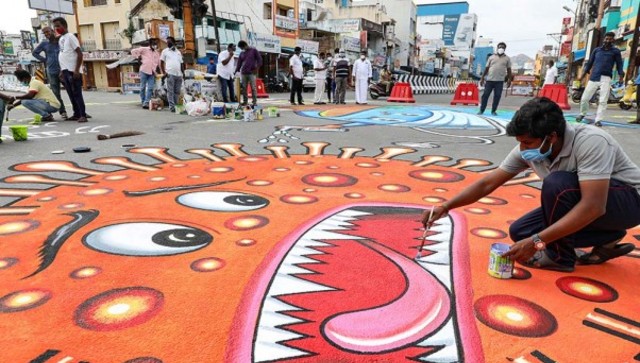As the number of Covid-19 cases continue to show a downward trend, the Centre has revoked the provisions of the Disaster Management Act 2005 for Covid containment measures. The National Disaster Management Authority {NDMA} had recommended the discontinuation of the invocation of the Act to the Centre since the pandemic situation is under control in the country. Taking note of the NDMA’s recommendation, the Union Home Secretary wrote to the Chief Secretaries of all States and Union Territories to discontinue the orders and guidelines issued under the Disaster Management Act. However, it said that the advisories on wearing face masks and maintaining hand hygiene can be continued. Also read: COVID vaccination pace slowed down in India as most target beneficiaries covered, says Centre Let’s take a look at what is the Disaster Management Act 2005 and what does the Centre’s order mean for the country: What is the Disaster Management Act, 2005 The Parliament passed the Disaster Management Act in 2005 after the 2004 tsunami which hit India’s eastern coast and killed about 10,000 people. Extending to the whole of India, the Act provides effective management of disasters and for matters connected therewith or incidental thereto." The main focus of this act is to provide help to the people who are affected with disasters. Under the law, the NDMA has powers to prepare national plans for disaster management and ensure its implementation through the state disaster management authorities. The states and UTs are bound to follow the Union home ministry’s orders under the law. Also read: COVID-19: Future waves unlikely to have serious impact in India, say experts Why was it invoked The provisions of the Disaster Management Act 2005 were invoked for the first time on 24 March 2020 to battle the pandemic. Union home secretary Ajay Bhalla said that the ministry had issued orders and guidelines under the Act for the Covid-19 containment since March, 2020. The law enabled the government to take proactive measures to deal with the unprecedented global crisis in coordination with the state governments and UT administration. What does it mean for the country The government in its official order stated that over the last 24 months, “significant capacities have been developed for various aspects of management of the pandemic, such as diagnostics, surveillance, contact tracing, treatment and vaccination, hospital infrastructure and the general public has much higher level of awareness on the COVID appropriate behaviour”. The NDMA had last issued a Covid-19 advisory on 25 February, asking states to follow a risk-based approach for the reopening of economic activities. The advisory will expire on 31 March. The latest government order advises all State and UTs to “appropriately discontinue issuing of orders and guidelines under the DM Act, 2005 for COVID containment measures”. It said that “no further Order may be issued by MHA” after the expiry of the existing order of 25 February. However, Covid containment measures such as use of face masks and hand hygiene can be continued. “However, Ministry of Health and Family Welfare advisories on COVID containment measures, including on the use of face mask and hand hygiene, will continue to guide the overall national response to the pandemic,” the letter said. Essentially, all existing Covid restrictions imposed by the Centre will be removed on 31 March, with the exception of wearing face mask in public areas. With inputs from agencies Read all the Latest News , Trending News , Cricket News , Bollywood News , India News and Entertainment News here. Follow us on Facebook, Twitter and Instagram.
Pandemic-related restrictions will end on 31 March. However, norms regarding face masks and social distancing will remain
Advertisement
End of Article


)

)
)
)
)
)
)
)
)



